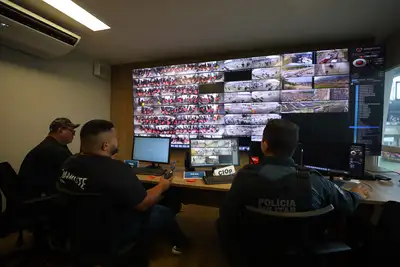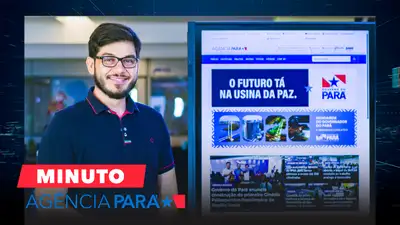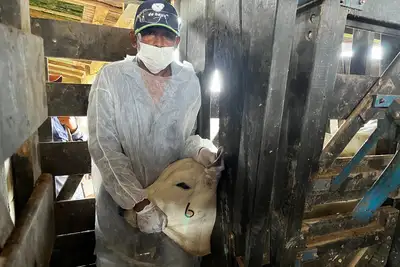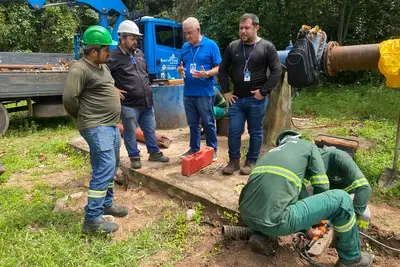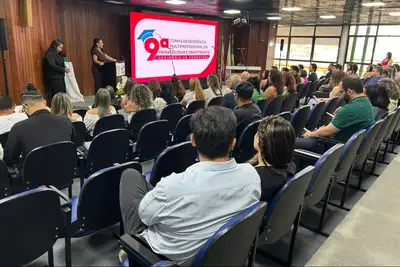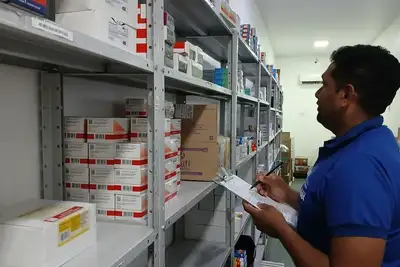At PCT Guamá, students complete the first module of Literacy in Artificial Intelligence
The initiative offers free classes on AI for residents of the Guamá and Terra Firme neighborhoods
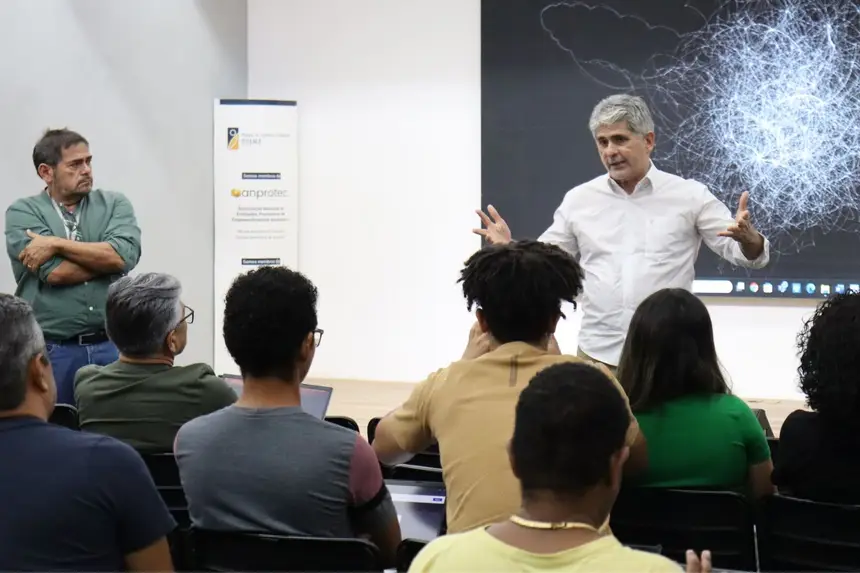
"Experience", "opportunity" and "more knowledge" are key words in Nayara Câmara's account. The young woman is an educator, a resident of the Guamá neighborhood, and has been enjoying the classes of the Digital Literacy in Artificial Intelligence (AI) course, held at the Guamá Science and Technology Park (PCT). "It has been an incredible experience because digital literacy is very important in any profession. Today, if you don't know how to use AI, technology to your advantage, you end up being cheated by yourself, so the course is opening new doors," she declares.
On this Monday (8), the participants of the course completed the first module of activities at the Park. Joana Farias, a resident of the Terra Firme neighborhood, has a degree in administration, is specializing in Human Resources, and saw the digital literacy course as an additional opportunity for professional qualification. "The market demand requires this knowledge, it is quite challenging, but we seek to adapt to this new reality, especially since it has come to provide us with more skills in certain functions, and in our work it brings more productivity," she comments.
Democratization of AI
The digital literacy course aims to democratize access to knowledge about AI, promoting digital inclusion among the community surrounding the technological park in Pará, located in the Guamá neighborhood in Belém. The training is carried out by the Guamá Foundation, a science and technology institution that manages the PCT, and seeks to develop basic competencies for the use of digital tools based on artificial intelligence and associated technologies, focusing on the social, educational, and community reality of the participants.
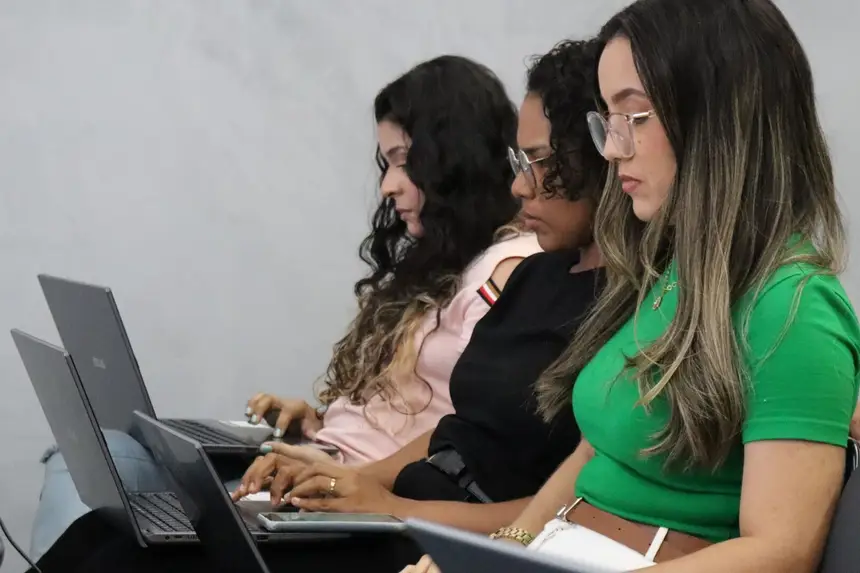
For professor and researcher Bruno Duarte, the commitment of the class has been fruitful. "The engagement of the students has been very good; I think they understood the demand to learn about artificial intelligence. Two or three students told me how they had a very poor idea of artificial intelligence and, by taking the course, they realized that there is good potential. Overall, I see that they understood how to use AI to increase their productivity, that is, there is really a good side to artificial intelligence and not just a bad side. I made it very clear that to take advantage of the good side, you need to be informed," details the course instructor.
The AI literacy course at PCT Guamá is offered free of charge and serves more than 20 students who were selected through a public notice. Classes started in August and continue until December of this year. The initiative has a workload of 120 hours, with in-person classes twice a week at the Entrepreneurial Space of the Park complex.
There will be a total of four modules with ten meetings. The evaluation involves attendance in classes, weekly assignments, and the submission of a mini-project at the end of the activities. Daniela Silva, a 20-year-old student of the Letters course, lives in the Parque Verde neighborhood and talks about her experience in the first meetings of the course. "I am enjoying it a lot; it has been very smooth, the teachers have a wonderful teaching method, it has been amazing. Having content like this is essential for students in any field," she evaluates.
At the end of the module, the president of the State of Pará Information and Communication Technology Company (Prodepa), Prof. Carlos Maneschy, spoke with the students and emphasized that the course is a pioneering opportunity to democratize access to knowledge about an innovative topic, empowering people of all ages and backgrounds to act and take the lead in the new digital and scientific landscape. "The course opens the doors to a new world, aimed at all audiences, and prepares citizens to understand, participate, and lead the ongoing digital and social transformations," he stated.
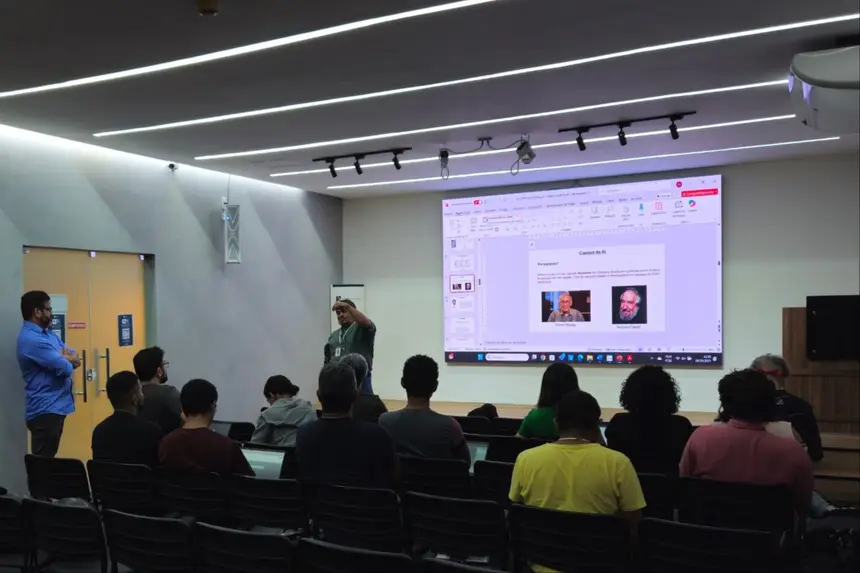
Ethical use of AI
Among the objectives of the course is to present the fundamental principles of machine learning, enabling the understanding of how algorithms learn data and are used in different contexts; to introduce basic programming concepts in Python focused on AI applications, in an accessible way for beginners; to stimulate critical and reflective thinking about the use of AI, developing responsible, ethical, and creative use of the learned technologies; to encourage the application of AI in solving local problems and in community strengthening for social transformation and improvement of quality of life.
Reference in innovation in the Amazon
The PCT Guamá is an initiative of the Government of Pará, through the State Secretariat of Science, Technology and Higher, Professional and Technological Education (Sectet), in partnership with the Federal University of Pará (UFPA) and the Federal Rural University of the Amazon (Ufra), managed by the Guamá Foundation.
It is the first technological park in the Northern region of Brazil and aims to stimulate applied research and innovative and sustainable entrepreneurship to improve the quality of life of the population.
Located on the banks of the Guamá River, which gives its name to the complex, the PCT is situated between the campuses of the two universities and has a rich biodiversity ecosystem, extending over 72 hectares, designated for buildings and the Environmental Protection Area (APA) of the Metropolitan Region of Belém.
The complex has more than 30 resident companies (physically installed in the Park), more than 40 associates (linked to the Park but not physically installed), twelve research and development laboratories for processes and products, and a technical school.
The PCT Guamá is part of the National Association of Entities Promoting Innovative Enterprises (Anprotec) and the International Association of Science Parks and Areas of Innovation (Iasp), and is part of the largest innovation ecosystem in the world.




